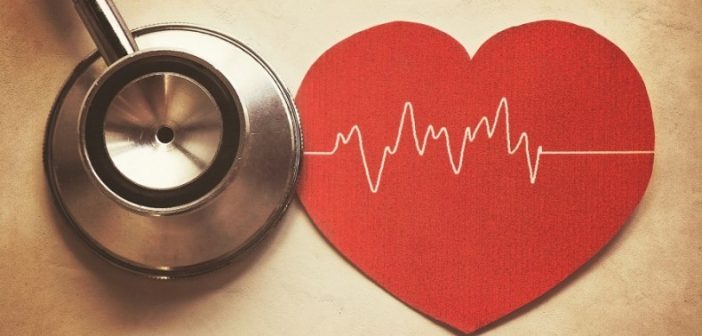At present, approximately 23 million Americans age 12 and older suffer from substance abuse of some sort. Substance abuse can be described as the dependency on legal or illegal drugs including, but not excluded to, cocaine, opioids, alcohol, marijuana, tobacco, or other substances.
Although individuals who engage in substance abuse are sometimes viewed as bad people, the reality is, there are numerous reasons why someone might abuse drugs. These reasons might include mental health issues, past trauma or abuse, family problems, bad influences, or general life struggles.
Regardless of the reason, the last thing someone with an addiction wants and needs to feel is misunderstood, judged, and secluded from everyone else. Individuals with addiction already receive enough of the latter, and truthfully, it hurts more than it helps.
Whether it’s you or a loved one who is suffering from substance abuse, know that it isn’t an end all, be all; there are ways to combat the demons tied to addiction. But first, one must see that they have a problem and then be willing to combat it.
To find substance addiction treatments and other solutions that may work for you or your loved one, consider the following options below.
- Inpatient rehab
An inpatient treatment program is typically effective even for individuals struggling with severe forms of substance addiction and/or co-occurring conditions. With 24-hour care around the clock, patients are given the medical attention they require every step of the way as they begin their substance-free life.
Inpatient rehabilitation centers can vary drastically from one facility to the next. Some facilities may offer different types of therapies, techniques, and programs. For instance, some facilities may offer experimental therapy, acupuncture, yoga, meditation, psychodynamic psychotherapy, and community group meetings.
Keep in mind that some inpatient centers may have stricter rules than others. Some have rules against phones and laptops while others may allow such. Many facilities offer fun activities, great views, chef-prepared meals, a swimming pool, and a massage studio.
- Outpatient rehab
In less severe cases of substance addiction, outpatient rehabilitation may be a successful solution to overcoming drug or alcohol abuse. Unlike inpatient rehab, patients apart from outpatient programs don’t live in a rehab center during treatment. Rather, they stay at home and just visit the center usually a few times a week.
Still, outpatient rehabilitation centers offer a plethora of useful services for those struggling with substance addiction. They may provide or administer counseling, medication, addiction education, biofeedback, therapy, and network support depending on what the patient may need.
There are different types of outpatient rehabilitation programs. These include day programs, intensive outpatient programs (IOP), and continuing care such as Alcoholics Anonymous and Narcotics Anonymous.
- Medications
Throughout treatment and the detoxification process, a medical professional may prescribe a certain medication to a patient with addiction. These medications can aid with the recovery process by reducing withdrawal symptoms, substance cravings, and/or damaging effects of the substance used.
Some medications may also be prescribed during substance addiction treatment to aid with other co-occurring conditions like mental health problems, especially if it’s causing or exasperating the patient’s substance abuse.
Although these medications often have side effects, they are generally safer and more convenient for an addiction recovery patient to take these medications to help them offset the symptoms from the recovery process itself.
Keep in mind that many professionals may shy away from prescribing certain drugs if they will interact negatively with the patient’s current addiction. Nevertheless, the priority is to ensure the recovery process for the patient is the safest for them physically, even if it’s not the easiest option.
- Behavioral therapies
Different types of behavioral therapies are used to help people treat mental illnesses, bad habits, violent behaviors, or addiction.
For substance addiction, in particular, the types of behavioral therapies that may help include cognitive behavioral therapy (CBT), family behavior therapy, rational emotive behavioral therapy, contingency management, and 12-step facilitation therapy.
The various types of behavioral therapies and the professionals providing such may offer different methods and techniques to help the individual with battling their substance addiction and/or the underlying reasons for such.
Note that two individuals with the same type and intensity of substance abuse may find success with a different type of therapy. Some may require multiple types of therapy in order to recover from addiction. Only medical professionals, as well as trial-and-error, can help one decide what type of therapy or other solution will be best for them.
- Multidimensional family therapy
For adolescences struggling from substance abuse, multidimensional family therapy might be a viable option. Although individual therapy might be important for those with substance addiction, going to therapy with their family may be integral, especially if their substance use is negatively affecting the rest of their family.
This science-based type of therapy specifically aims to address not only the substance abuse and/or mental health problems among youth but also the relationship between the adolescent and their parents as well as with their family as a whole.
Addressing the function, communication, support, and stability of the family of the adolescent with a substance abuse problem can help ensure that the adolescent has a safe, thriving, supportive environment to grow in as they recover.
- Sober living homes
After the successful completion of in-patient care, the patient may be recommended to reside in a sober living home or halfway house. In these temporary, 24/7 residences, patients learn to adapt from in-patient life to regular life back at home as they reinforce what they learned in in-patient care.
Like other treatment facilities, sober living homes have rules. Those residing in these environments cannot engage in substance use and must abide by the specific structure the house enforces. The staff running these environments also help residents find a job, new housing, and generally an independent sober life outside of the sober living home.
- Faith-based treatment
For individuals struggling with addiction who are religious, they may find themselves surrounded by family and/or friends who use their faith against them due to their substance abuse. They may ill-mannerly inform them that their addiction is contradicting their religious beliefs. However, anyone can struggle with addiction, religious or not.
Although many religions discourage drug and/or alcohol abuse or use, someone with a substance addiction who is surrounded by people who condescendingly remind them about their “contradicting faith” may not only discourage the sufferer from getting help for their addiction but also encourage them to draw away from their religion.
In response, the individual suffering from the addiction may get worse as the abuse or neglection from their family or friends also worsens. However, what those struggling with addiction need are open arms that will welcome them and provide them the support they need during their difficult times.
With faith-based addiction treatments, those who engage in substance abuse can receive the help that they need as they connect with their higher power. Patients apart from these programs will not be judged for their actions in accordance with their spirituality, which is imperative during their path to a sober life.
- Addiction hotlines
While it is not a formal type of treatment for those struggling with substance abuse, addiction hotlines still serve as a vital solution for some individuals when they really need it. The point of addiction hotlines is to give those with addiction information and hope regarding getting the help they need.
Addiction hotlines are ideal to call when one has not yet entered the addiction recovery process, has recently relapsed and is losing hope regarding their recovery, or is having trouble finding the right resources for quality treatment.
- Support groups
Although it will usually take more than a support group to get the help someone with substance abuse requires, these groups are still important for many to gain the guidance and support they need to overcome addiction. This is especially true for individuals who have little to no support from family and friends.
Specifically, individuals apart from addiction support groups can learn from the experiences of others who have gone through something similar as they have. They can also learn new techniques to deal with their cravings, get advice for their specific struggles, and realize that they are not alone as they might think.
Conclusion
We treat addiction like it’s something that every sufferer experiences exactly the same. Not only may there be different substances involved in different individuals’ cases, but they may exhibit different symptoms, reasons for abusing their choice of substance, and addiction intensity.
Although some people say that addiction is a life-long disorder, there are many treatments and solutions out there that can help someone struggling from addiction lead a healthier, substance-free life forever if that’s what they decide to do. Addiction help ranges from behavioral therapies to medications.
Keep in mind that some individuals may require more than one type of treatment in order to find relief from substance addiction. Even when one discovers which type of treatment works best for them, it may take time to find the right facility and/or professional to help properly deliver that solution to them for the best results.
For recommendations on what treatment(s) will work best for you or your loved one for addiction, please consult a qualified medical professional.




